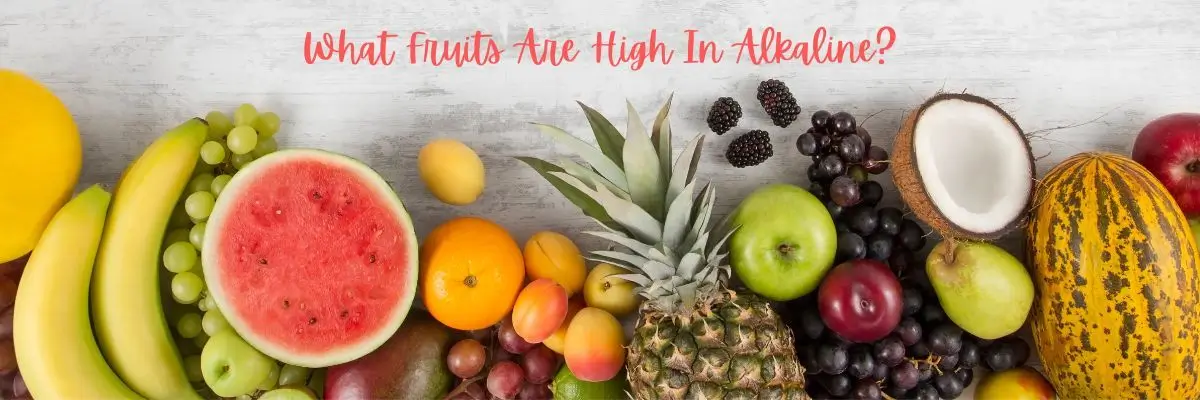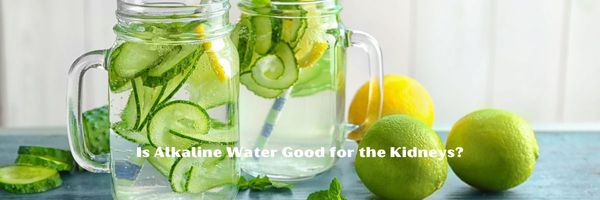Have you ever wondered what fruits are high in alkaline?
Alkaline fruits, put simply, are fruits with lower acidic components, resulting in a higher pH level. In other words, these fruits possess a reduced acidity and elevated alkalinity.
Maintaining a proper alkaline balance is crucial for overall well-being, as it helps reduce the likelihood of chronic ailments and promotes optimal energy levels.
This article is intended for fruit enthusiasts who seek to maximize the benefits of their fruit consumption. It also serves as an encouragement for those who may not currently consume fruits. Furthermore, for those who are reluctant to consume fruits, there are alternative options such as alkaline-rich foods and alkaline water that can provide similar properties and benefits.
Understanding Alkalinity
Before we start ranking fruits based on their alkalinity, let's briefly understand what it means for a food to be alkaline. The pH scale measures how acidic or alkaline something is. A pH of 7 on the pH scale is neutral. Anything below 7 is acidic pH and anything above 7 is alkaline or basic.
Our body functions best in a slightly alkaline state, with a blood pH of around 7.4. An overly acidic environment in the body can lead to health issues like inflammation, fatigue, and weakened immunity. That's where alkaline-forming fruits come in.
Fruits And Alkaline - The Connection
Fruit is a delicious, nutrient-rich snack and an important part of any healthy diet. But did you know that not all fruits are created equal when it comes to their alkaline content? Some fruit varieties have a high pH value and are considered “high in alkaline” while other types of fruit come with a more acidic kick.
According to the age-old adage, consuming an apple daily can help maintain good health and prevent the need for medical intervention. Even if you're not particularly fond of fruits, it's advisable to prioritize those that offer maximum benefits and impact.
Let's look at the top 10 fruits high in alkalinity that you should incorporate into your diet.
10 Best Alkaline Fruits
Lemons
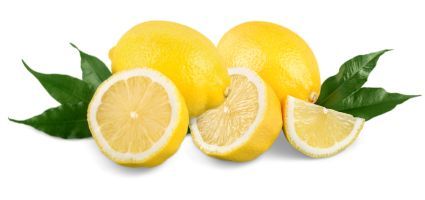
During childhood, many of us tend to avoid lemons due to their sour taste, which can be quite off-putting. While lemons, a type of citrus fruits, may seem acidic, they’re one of the most alkaline fruits out there as they become alkaline as soon as they metabolize in your body. The lemons are packed with vitamin C, which helps to boost your immune system and promote healthy digestion.
It is good for the heart, aids digestion, cleanses the liver, and is used as a prevention of kidney stones.
Every day, I add a squeeze of fresh lemon juice and a slice of lemon to my water or tea and it is a simple way to incorporate more alkalizing foods into our diet.
Watermelon
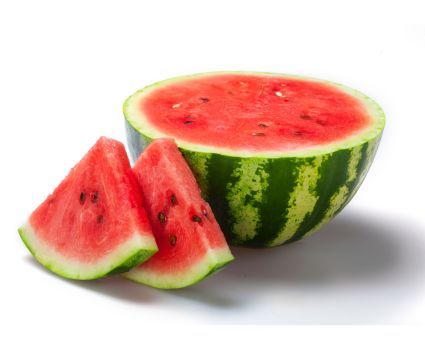
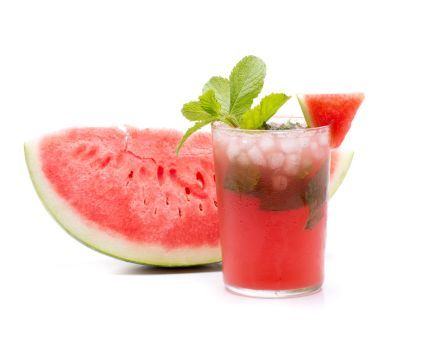
This delicious fruit is not only refreshing, but it’s also highly alkaline. Watermelon is a "Water Fruit" having a water content of more than 83%, making it a good hydration source. Remember the power of hydration!
Watermelon is packed with antioxidants, such as lycopene, which can help to protect your body against disease and promote healthy skin. Add watermelon to your smoothies or snack on some fresh slices to reap the benefits. It is invigorating.
Pineapple

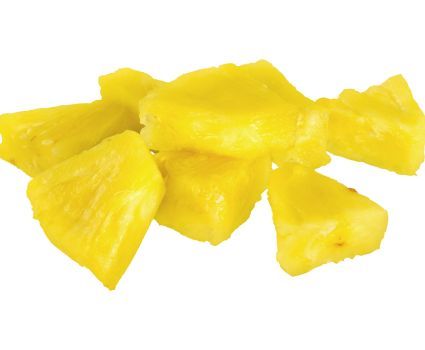
Pineapple is another great fruit that is high in alkaline. It has anti-inflammatory properties, which can help to reduce swelling and inflammation throughout the body. Pineapple also contains the enzyme bromelain, which aids in digestion and can help to reduce bloating and gas.
Papaya
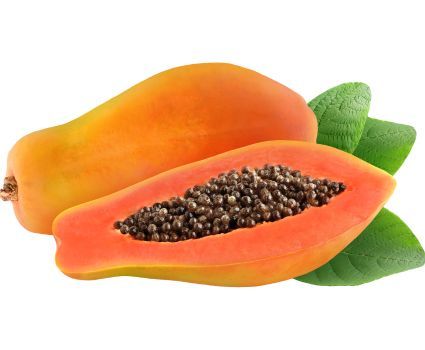
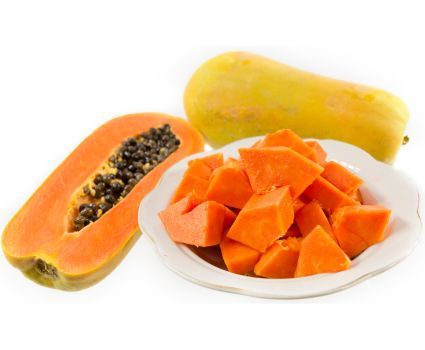
Papaya, a tropical fruit with its rich nutrient profile includes vitamin C, aiding the immune system, vitamin A for eye health, and dietary fiber promoting digestion. This fruit supports skin health, aids weight management, and may lower inflammation, reducing the risk of chronic diseases. With potential benefits for heart health and cancer prevention, papaya is a delicious and nutritious addition to a balanced diet.
You can add 2-3 tablespoons of yogurt to your bowl of papaya for a delicious and healthy breakfast.
Kiwi
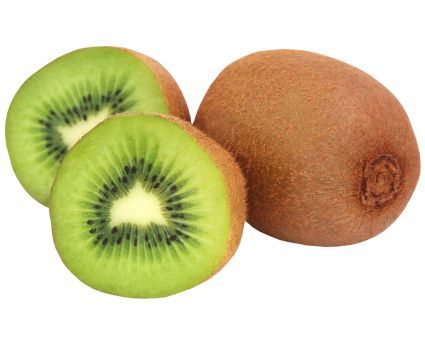
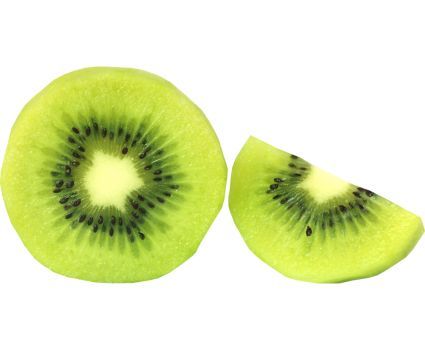
Kiwi is a small, green fruit that’s packed with nutrition. It is also highly alkaline and can help to support a healthy pH balance in the body.
It’s high in vitamin C to boost immunity and promote skin health. It's a rich source of vitamins K and E, aiding blood clotting and skin nourishment. Kiwi's dietary fiber supports digestion and aids in weight management, keeping you slim. Plus, its potassium content contributes to your heart health.
Bananas
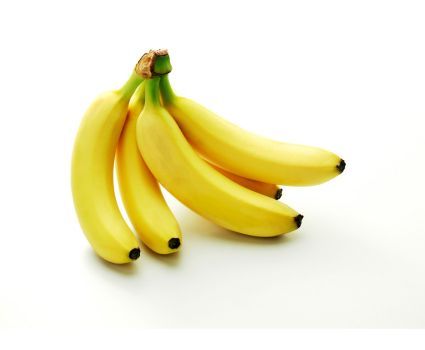
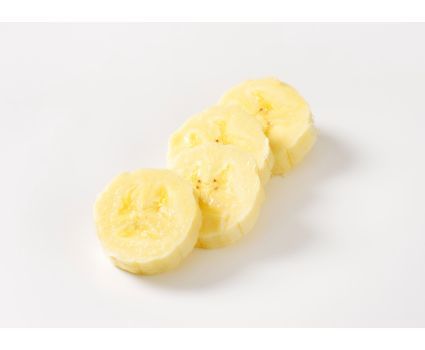
Bananas are nature's sweet and nutritious gift and are known for their alkalizing properties. Bananas taste and smell so good, especially if you are taking them for breakfast and your mouth is pure and unadulterated by other foods. Don't believe me? Try it ....
Bananas are rich in potassium, crucial for heart health and regulating blood pressure. They offer a quick energy boost, thanks to natural sugars and carbohydrates. High fiber aids digestion, preventing constipation. Vitamin C boosts the immune system, while vitamin B6 supports brain health. The magnesium content promotes bone health.
The riper they are, the higher their alkaline level. Allow them to ripen. Simply hang them up and watch them ripen. I usually buy a few brunches of bananas of different ripeness and allow them to ripen on their own, providing me with a continuous supply of ripe bananas.
Cantaloupe
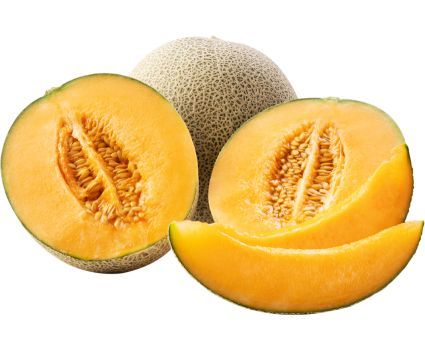
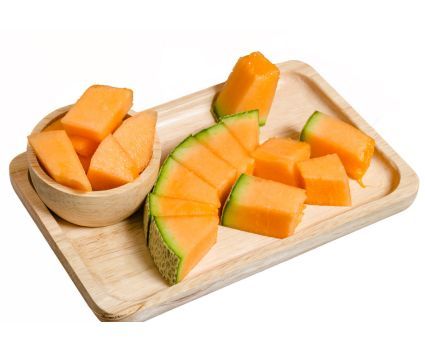
Cantaloupe is a juicy and highly alkaline refreshing fruit and they are rich in vitamin C, which strengthens your immune system and promotes skin health. They're also packed with vitamin A, supporting eye health. Their high water content aids hydration, and dietary fiber aids digestion and weight management.
They are rich in potassium which helps regulate blood pressure and heart function. Antioxidants like beta-carotene may reduce the risk of chronic diseases. Plus it helps to control blood sugar level.
Avocados

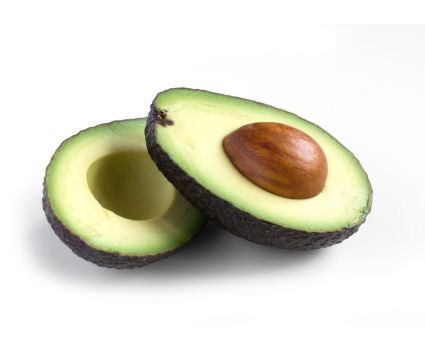
Often considered a vegetable, avocados are actually a fruit and have excellent alkalizing properties. Avocados are packed with healthy monounsaturated fats, supporting heart health and satiety. They're a treasure trove of fiber, aiding digestion and weight management. Rich in potassium, they help regulate blood pressure, and especially beneficial for those suffering from high blood pressure.
Avocados supply vitamins E and K for skin and bone health, while folate is essential for cell division. Their antioxidants combat oxidative stress and inflammation, reducing the risk of chronic diseases. So, embrace avocados for a creamy dose of well-being!
Try blended avocados with some chocolate cream added to it. You are in for a yummy guilt-free treat. My choice as an after-meal delight.
Apples
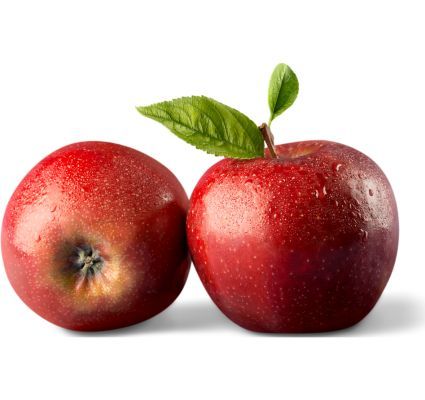
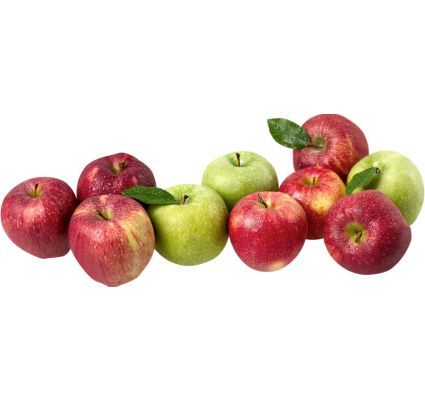
Apples are known for their high nutritional value and alkaline properties. They support heart health with cardioprotective compounds like flavonoids, antioxidants that fight oxidative damage.
High fiber is good for digestion and weight management, and it helps in the absorption of stomach acid, reducing the acidity level in the stomach. The pectin content can lower "bad" LDL cholesterol levels, reducing the risk of heart disease. Apples also help regulate blood sugar levels and reduce inflammation.
With a multitude of vitamins and minerals, apples are a crunchy, nutritious delight, a natural way to nurture your body's well-being. Remember, red apples are more alkaline compared to their green pals. And to add to it, apple cider vinegar is also a good source of alkaline drinks with many benefits.
Remember the old saying.. an apple a day keeps the doctor away.
Pears

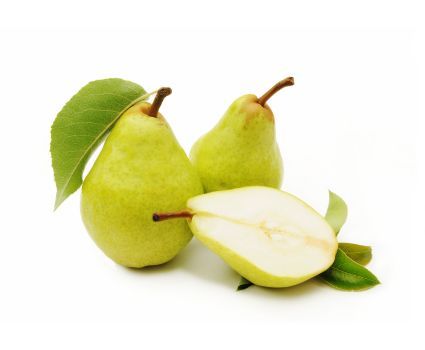
Pears are another alkaline fruit that is abundant in dietary fiber, supporting digestion and weight management. They're a source of vitamin C, bolstering the immune system and enhancing skin health. Potassium content helps regulate blood pressure and supports heart health.
Pears also offer vitamin K, promoting bone health, and antioxidants combat oxidative stress, potentially reducing the risk of chronic diseases.
Final Thoughts
While it's beneficial to incorporate more alkaline-forming fruits into your diet, balance is key. An overly alkaline diet can lead to its own set of problems, such as nutrient deficiencies. Furthermore, it's important to remember that our bodies have sophisticated mechanisms to maintain pH balance.
Ultimately, a alkaline diet rich in a variety of fruits and vegetables, whole grains, lean proteins, and healthy fats is the best approach for overall health. If you have specific dietary concerns or health conditions, it's always best to consult with a healthcare professional or a registered dietitian.
Keep in mind that the fruit with the highest alkaline content may not necessarily be the healthiest for you. Pay attention to your body's signals and select fruits that you genuinely enjoy and that make you feel good.
It is crucial to maintain a diverse diet that encompasses a wide array of fruits (citrus fruits and non citrus fruits), green leafy vegetables, and other alkaline food groups to ensure that your body receives all the essential nutrients it needs. Avoid acid-forming foods and other processed foods.
After all, the best alkaline diet is the one you can stick to in the long term.
Enjoy your fruits!
Benefits of Eating Alkaline Fruits
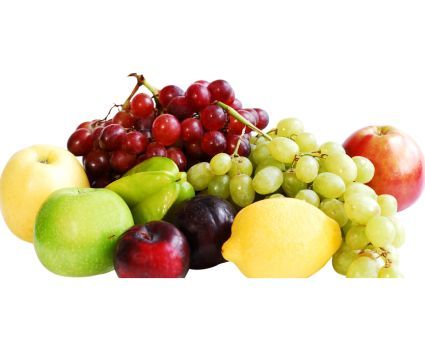
In case you may be asking what are some of the known and lesser-known benefits and interesting facts of eating alkaline fruits (and alkaline-forming foods) and their effects on our human body. I have included 10 benefits for your understanding.
Improved Athletic Performance
Some athletes and fitness enthusiasts believe that consuming alkaline fruits can help reduce lactic acid buildup in muscles, potentially enhancing endurance and reducing muscle soreness.
Bone Health
While calcium is generally associated with dairy, some alkaline fruits like figs and oranges contain calcium and may contribute to overall bone health.
Reduced Risk of Kidney Stones
Alkaline fruits, particularly citrus fruits, can increase the citrate levels in urine, which may reduce the risk of developing kidney stones. Read this informative blog on Is Alkaline Water Good for the Kidneys?
Alkaline Watermelon
Watermelon, often considered an acidic fruit due to its sweetness, is alkaline-forming in the body, making it a refreshing and hydrating choice for those seeking alkaline foods.
pH Regulation
Alkaline fruits can help your body maintain a slightly alkaline pH level, which is believed to be less conducive to the development of certain diseases and ailments.
Antioxidant Power
Many alkaline fruits are rich in antioxidants, which can help protect your body's cells from damage caused by free radicals.
Digestive Health
Alkaline fruits with high fiber content, like papaya and guava, promote healthy digestion by aiding in regular bowel movements and preventing constipation, improving your digestive system.
Alleviating Heartburn
Acidic foods are known to trigger heartburn, you can find relief from heartburn symptoms by consuming alkaline fruits, as they may help neutralize excess stomach acid.
Mood Enhancement
Nutrient-rich alkaline fruits can contribute to overall well-being and may have a positive impact on mood and mental health.
Anti-Inflammatory Benefits
An alkaline diet, including alkaline fruits, is thought to reduce inflammation in the body, potentially alleviating symptoms of inflammatory conditions, and improving cardiovascular health.
For a better understanding of Lemon Juice, read this article on whether it is acidic or alkaline and does it matter.

Living the Great Outdoors with Trusted Outdoor Gear!
Another short article from Trusted Outdoor Gear - Live Life .. Live Well!

